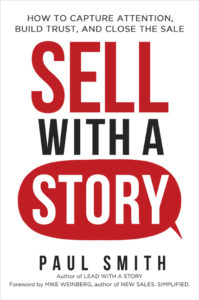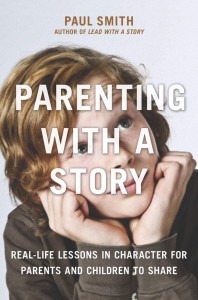Podcast (parenting-with-a-story-podcast-series): Play in new window | Download | Embed
Subscribe: RSS
When Darrell was in the third grade he did something he’s regretted for the thirty-five years since. What was his unforgettable and unpardonable sin? He wrote a poem. A very bad poem.
Darrell’s class had been learning the rhyme and meter of several forms of poetry. One particular week they learned about limericks. That’s a five-line poem, written in what poet’s call anapestic meter, and with an unmistakable rhyming pattern. You recognize one immediately when you hear it.
To demonstrate they understood the form, each student had to write his or her own original limerick and then read it out loud to the class. Darrell wasn’t much of a class clown. But he was quite pleased with his poem because, at least in his mind, it was exceedingly funny. And he assumed everyone else would think so as well. When it was his turn, he proudly read the following to the class:
Sally Shale
Was as fat as a whale
She was so fat
She had a flat
And that was the end of Sally Shale
Darrell finished his limerick and waited with a wide smile for the howls of laughter he expected. He got none. Nor did he get the compulsory applause the other students got for even the lamest poems.
Even at the age of eight, Darrell recognized the unmistakable look of disgust and confusion on the faces of his fellow classmates and his teacher.
 As for Sally Shale (a fellow third-grader in his class), it’s true, she’d struggled with her weight most of her life. Darrell had just added himself to a long list of tormentors. But at his age, it never occurred to him that his words might be offensive. It was the first time in his life he remembers being painfully aware that his words had hurt someone.
As for Sally Shale (a fellow third-grader in his class), it’s true, she’d struggled with her weight most of her life. Darrell had just added himself to a long list of tormentors. But at his age, it never occurred to him that his words might be offensive. It was the first time in his life he remembers being painfully aware that his words had hurt someone.
Darrell avoided Sally for weeks, just out of embarrassment. And as many children (and adults) do, what he did see her, he just pretended nothing had ever happened, hoping she’d forget about it. What he didn’t count on, though, was that he would be the one who wouldn’t be able to forget.
Today, at the age of forty-two, not a month goes by that Darrell’s thoughts don’t drift back to third grade and to Sally Shale. He relives that awful moment he first uttered his hurtful limerick. And he’s still remorseful about it. It’s not a debilitating regret that consumes him daily. But in thirty-five years, he’s suffered countless times for that one single unresolved transgression.
Just imagine how much pain and anguish Darrell could have saved himself if he’d just apologized to her and put the entire incident behind him. Oh, his teacher made him give the obligatory “I’m sorry” immediately after the poetry reading. But that’s different than a genuine, heartfelt apology from someone who really understands what they’ve done wrong. And the longer he went without giving a true apology, the harder it got to even consider.
Then, three decades later, in the Internet age of social media, he came across Sally’s name on Facebook. He thought about contacting her and asking forgiveness. But doubt set in. “Would this just open up a wound that had long since closed? Would she think it self-serving of me to apologize after all these years, perhaps just to clear my conscience?” So he didn’t. And so the thorn remains.
The Lesson
Darrell learned two valuable lessons from that experience. The first was this: Despite what you may have heard about “sticks and stones,” words can hurt people. As a result, to this day, it would be a rare occasion to find Darrell saying anything ill of another person who didn’t truly deserve it.
His second lesson was the value of asking forgiveness. Without it, not only does the pain of an offense remain with the victim, but it continues to fester in the perpetrator as well. And the longer one goes without apologizing, the harder it is to do. Resolve to apologize early, and you’ll never have to suffer decades of remorse, no matter how bad your poem is.
As with all of these stories, I encourage you to share this with your kids, and then have a discussion about it. Here are some questions to get you started.
- How do you think Sally felt when Darrell read his poem in class?
- If Darrell had given her a real apology, do you think he would still be thinking about that moment as often?
- If Darrell wanted to apologize to Sally today, what words might he use to do it in a way that wouldn’t seem self-serving?
- Do you think it’s ever too late to offer an apology? How late is too late?
Use these links to subscribe to this PWAS podcast on iTunes or Stitcher, or Podbean.
Source: Parenting with a Story: Real-life Lessons in Character for Parents and Children to Share, by Paul Smith.
—
 Paul Smith is one of the world’s leading experts on business storytelling. He’s a keynote speaker, storytelling coach, and bestselling author of the books Lead with a Story, Parenting with a Story, and Sell with a Story.
Paul Smith is one of the world’s leading experts on business storytelling. He’s a keynote speaker, storytelling coach, and bestselling author of the books Lead with a Story, Parenting with a Story, and Sell with a Story.


 Connect with him via email here.
Connect with him via email here.
Follow him on Facebook, LinkedIn, Twitter, and Instagram.
Sign up for his newsletter here to get one new story a week delivered to your inbox.

